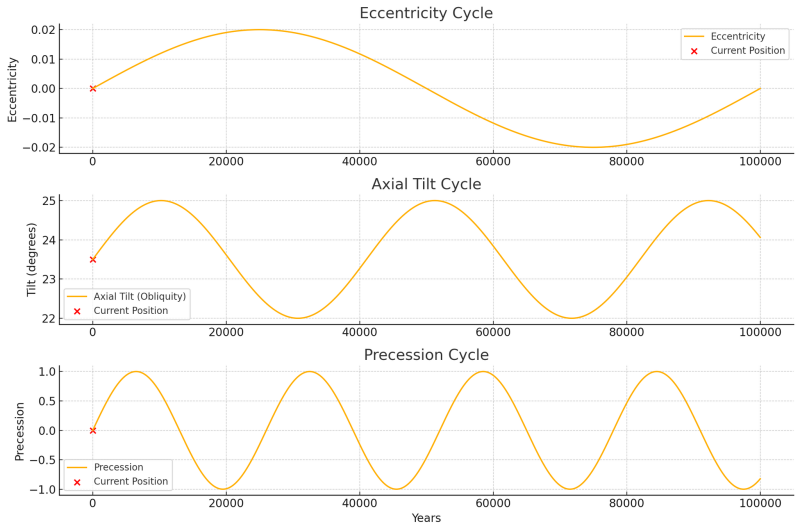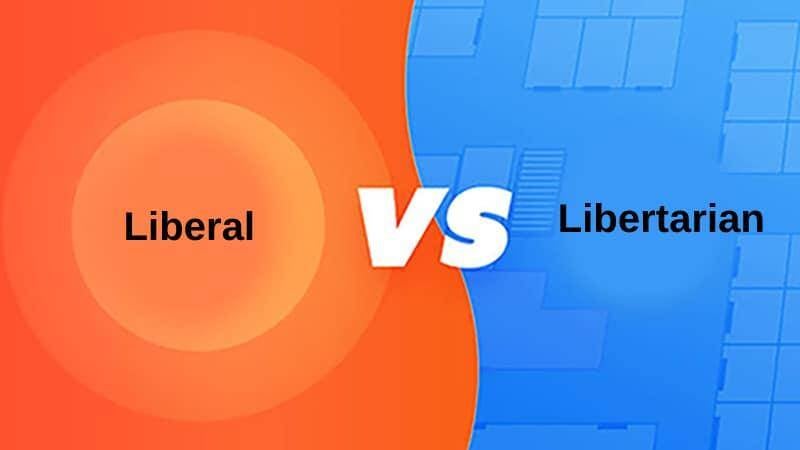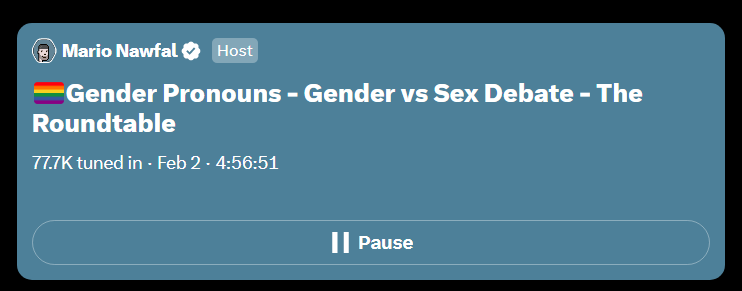Educational Purposes
Everything Science, Medical, Technical, Industrial and Psychological



Nuclear Survival in Rhode Island
We have information on food and water storage, and also on alternative technologies, organic gardening, seed saving, canning and other aspects of sustainable living. We are currently putting together a list of skilled trades-men and -women willing to assist with personal preparation.
The Brutal Truth Copyright Disclaimer under Section 107 of the Copyright Act of 1976: Allowance is made for “fair use” for purposes such as criticism, comment, news reporting, teaching, scholarship, education, and research.
Real Truth and WEF lies
The Brutal Truth Copyright Disclaimer under Section 107 of the Copyright Act of 1976: Allowance is made for “fair use” for purposes such as criticism, comment, news reporting, teaching, scholarship, education, and research.
Why Does Israel Get So Much Hate? The Shocking Truth Behind 1400 Years of Conflict!
Rabbi Aryeh Weinstein is the Director of the Jewish Learning Academy at Lubavitch of Bucks County, Pennsylvania as well as the Rabbi of The Shul at Newtown. Rabbi Weinstein is the host of the Beginning Within podcast and the creator of The Bar Mitzvah Prep School to help Bar Mitzvah boys prepare for their Bar Mitzvah in a meaningful way.
Beginning Within is all about strengthening ourselves by spending less time getting drawn into what’s going on around us and spending more time focusing on what’s going on within us. This happens through developing an intentional perspective of ourselves, others and G-d. This drives us to be expansive and purpose-oriented instead of being narrow and self-oriented.
Rabbi Aryeh Weinstein serves as the Rabbi of The Shul at Newtown, a Chabad synagogue in Newtown, Pennsylvania, and is the Director of the Jay Michael Swartz Jewish Learning Academy at Lubavitch of Bucks County. With over two decades of leadership, he has been instrumental in fostering a vibrant Jewish community through education, spiritual guidance, and outreach initiatives.(lessons.myjli.com)
Beyond his congregational duties, Rabbi Weinstein is known for his engaging teaching style and commitment to making Jewish learning accessible. He hosts the "Beginning Within" podcast, focusing on personal growth and spiritual development, and has authored the book It's Within You, which explores inner transformation through a Jewish lens.
Additionally, he developed the Bar Mitzvah Prep School, a program designed to prepare young boys for their Bar Mitzvah with meaningful study and personal reflection.(Gate of Trust, Chabad)
Rabbi Weinstein resides in Newtown with his wife, Rosie, who actively collaborates with him in community endeavors. Together, they are proud parents of nine children and grandparents to two, embodying the values they impart within their community.(Gate of Trust, jewishcenter.info)
The Brutal Truth Copyright Disclaimer under Section 107 of the Copyright Act of 1976: Allowance is made for “fair use” for purposes such as criticism, comment, news reporting, teaching, scholarship, education, and research.
You can get Blood from a Stone
Easily and DNA from Giant Humans.
I am asking PBS and Jeffrey Brown (the interviewer) to moderate my debate with Prof Blight at Yale.... If Truth is the objective, they will respond.
On TV on PBS Prof Blight from Yale argues that we all Own History and we must be confident it is factually true...we would all agree.
He focuses on how we treated and enslaved others in our American History. I agree 100% and now we need to open doors widely and my research makes everyone equal now.
Jeffery Brown from PBS asks, "Who Owns History" and my research makes me fully qualified to answer. Every Scientific test and specimens available so I expect to have my say as well....as was stated by Prof Blight ...
"We Must Look for evidence from wherever it comes."
The Brutal Truth Copyright Disclaimer under Section 107 of the Copyright Act of 1976: Allowance is made for “fair use” for purposes such as criticism, comment, news reporting, teaching, scholarship, education, and research.
How SPAM is made in factory
C'mon... You know you want to know.
Over 8 billion cans of Spam have been sold worldwide since it was first made that’s 3 cans every second! But how is Spam made, and why is it so loved around the world?
Get ready to explore how the world’s favorite products are mass-produced in fascinating factories worldwide. From everyday snacks like KitKats, Pringles, and Doritos to luxury goods like Rolls Royce cars and Louis Vuitton shoes, our channel takes you behind the scenes to uncover the secrets of modern manufacturing.
Copyright Disclaimer under Section 107 of the Copyright Act of 1976: Allowance is made for “fair use” for purposes such as criticism, comment, news reporting, teaching, scholarship, education, and research.
Why is this symbol hidden everywhere in the UK?
Copyright Disclaimer under Section 107 of the Copyright Act of 1976: Allowance is made for “fair use” for purposes such as criticism, comment, news reporting, teaching, scholarship, education, and research.
The World's Most Luxurious Prison. Halden Prison
Halden Prison: Inside the World’s Most Luxurious Correctional Facility
Halden Prison, located in southeastern Norway near the Swedish border, has become globally known as the most luxurious prison in the world. Designed to emphasize rehabilitation over punishment, Halden reflects Norway’s progressive approach to criminal justice—an approach that has sparked admiration and controversy alike.
Opened in 2010, the prison was built with one main goal: to help inmates reintegrate into society as functional, law-abiding citizens. The facility houses up to 252 prisoners, including those convicted of serious crimes like murder or assault. But what sets Halden apart is not its size or security—it’s the environment.
There are no bars on the windows, no traditional prison uniforms, and no harsh concrete yards. Instead, inmates live in private rooms with flat-screen TVs, mini-fridges, and en-suite bathrooms. Each room has a view of the surrounding forest, and inmates are encouraged to engage in education, music, and culinary programs. There’s even a fully equipped recording studio, woodworking shop, and a teaching kitchen. Guards and prisoners often share activities, fostering a sense of community rather than division.
The prison’s architecture and interior design were crafted with dignity and humanity in mind. The walls are covered in artwork, and common spaces feel more like a college dorm or modern co-living space than a conventional penitentiary. Daily life focuses on structure, responsibility, and personal growth. Inmates cook their own meals, pursue vocational training, and receive counseling and therapy sessions regularly.
From a conservative and middle-of-the-road perspective, Halden’s model raises challenging questions. Supporters argue that treating prisoners with dignity reduces recidivism—and Norway’s stats back that up. The country’s recidivism rate is under 20%, compared to over 60% in the U.S. Critics, however, see it as too lenient, arguing that such a comfortable lifestyle could be seen as a reward for criminal behavior. For victims of violent crimes, the optics of luxurious accommodations for perpetrators can be painful and difficult to reconcile.
Nonetheless, Norway defends the model by emphasizing long-term societal outcomes. The philosophy is that nearly all inmates will eventually be released, and a rehabilitated citizen is safer and more beneficial to society than a hardened, angry one. The approach focuses on restoration over retribution, which contrasts sharply with many Western punitive systems, especially in the United States.
The prison has drawn international attention, including documentaries, news reports, and criminology studies. It is often referenced in academic circles as a benchmark for humane incarceration, even as it faces criticism from those who believe punishment should be a stronger deterrent than rehabilitation.
World's Most Luxurious Prison | Halden Prison:
Vacation For Murderers? | Free Documentary
Sources:
Copyright Disclaimer under Section 107 of the Copyright Act of 1976: Allowance is made for “fair use” for purposes such as criticism, comment, news reporting, teaching, scholarship, education, and research.

Why Thousands of Americans Are Renouncing Citizenship
In recent years, an increasing number of Americans have chosen to renounce their U.S. citizenship. This trend, once considered rare, has gained momentum, with thousands taking the significant step of cutting formal ties with the United States. The reasons behind this phenomenon are complex, reflecting personal, financial, and political factors.
According to the U.S. Treasury Department, thousands of Americans renounce their citizenship each year. In 2023 alone, over 3,000 individuals formally relinquished their citizenship, continuing a trend that has grown steadily over the past decade. This surge has raised questions about the motivations driving such decisions and their broader implications.
Key Reasons for Renunciation
-
Taxation Policies
The U.S. is one of the few countries that imposes taxes based on citizenship rather than residency. This means that American citizens living abroad are required to file U.S. tax returns, even if they earn no income within the United States. The complexities of complying with the Foreign Account Tax Compliance Act (FATCA) and the potential for double taxation have led many expatriates to view renunciation as a way to simplify their financial lives. -
Global Mobility and Dual Citizenship
Some Americans renounce citizenship to gain greater freedom in global mobility. Countries that do not permit dual citizenship may require individuals to give up their U.S. citizenship to access benefits such as property ownership, voting rights, or local employment opportunities. -
Political Dissatisfaction
For some, renunciation is a statement of political or ideological discontent. Dissatisfaction with U.S. domestic or foreign policies, perceived erosion of personal freedoms, or disagreement with government actions can motivate individuals to sever formal ties. -
Family and Personal Reasons
Americans married to foreign nationals or with families abroad may renounce citizenship to align with their family's legal and cultural circumstances. In such cases, renunciation simplifies legal statuses and reduces bureaucratic hurdles. -
Financial Privacy Concerns
FATCA has also been criticized for its perceived intrusion into financial privacy, requiring foreign financial institutions to report account details of U.S. citizens. Some see renunciation as a way to reclaim financial privacy.
Renouncing U.S. citizenship involves a formal process:
- Individuals must appear in person at a U.S. embassy or consulate and sign an oath of renunciation.
- The process includes completing IRS paperwork to ensure compliance with tax obligations up to the date of renunciation.
- A significant hurdle is the renunciation fee, currently set at $2,350, one of the highest globally.
For those with high net worth, an exit tax may also apply, based on the value of their worldwide assets.
The rise in citizenship renunciations has several implications:
- For the U.S. Government: The trend has prompted debates over the fairness of U.S. tax policies, particularly FATCA, and whether reforms are needed to address expatriate concerns.
- For Individuals: Renunciation often comes with emotional and practical challenges, including the loss of automatic access to the U.S. and its benefits.
- Globally: The phenomenon highlights the complexities of modern citizenship, as individuals navigate a world increasingly interconnected by globalization yet bound by national regulations.
The growing number of Americans renouncing citizenship underscores evolving relationships between individuals and their governments in an era of global mobility and complex financial regulations. While the reasons vary, the decision reflects deeply personal considerations and significant trade-offs. As this trend continues, it raises important questions about the future of citizenship in a globalized world.
Sources:
-
BBC News: Americans Renouncing Citizenship in Record Numbers
-
Why Thousands of Americans are Renouncing Citizenship - YouTube
Copyright Disclaimer under Section 107 of the Copyright Act of 1976: Allowance is made for “fair use” for purposes such as criticism, comment, news reporting, teaching, scholarship, education, and research.
AI in the Age of Personalization: Revolutionizing Industries and Daily Life
Artificial Intelligence (AI) is no longer confined to the realm of science fiction or niche technological advancements. It has become an integral part of modern life, driving innovation across industries and changing the way individuals interact with technology. As AI evolves, it is moving toward hyper-personalization, creating tools and solutions tailored to the unique needs of users. From conversational AI to groundbreaking applications in healthcare and finance, AI is shaping a future that promises convenience, efficiency, and profound societal impact.
The Power of Personalized AI
AI’s future lies in its ability to seamlessly integrate into personal workflows, offering solutions that feel intuitive and proactive. According to the Forbes Tech Council, personalized AI tools can anticipate user needs, streamline tasks, and even improve quality of life. Whether it’s a smart assistant managing schedules or a health-focused AI providing tailored wellness recommendations, this level of personalization is expected to redefine how we view and use technology. As AI becomes more embedded in daily life, its adoption will grow exponentially, making it indispensable in personal and professional settings.
AI Across Industries
The transformative power of AI extends far beyond individual use. Industries are leveraging AI to innovate and optimize operations. Forbes Insights highlights examples such as retail companies using AI for dynamic pricing and inventory management, and healthcare providers utilizing AI for early diagnosis, personalized treatments, and advanced research. These advancements are not only increasing efficiency but also creating opportunities for enhanced customer experiences and better patient outcomes.
In the financial sector, AI-driven tools like predictive analytics and fraud detection are streamlining operations while improving security. Meanwhile, in manufacturing, AI is enabling predictive maintenance and optimizing production lines. This widespread adoption is indicative of AI’s versatility and its potential to drive growth across various domains.
Conversational AI and ChatGPT
One of the most talked-about advancements in AI is conversational technology, exemplified by ChatGPT. As detailed by TechCrunch, ChatGPT is a sophisticated language model that excels at engaging in meaningful and context-aware conversations. From customer service to educational support and creative writing, ChatGPT’s applications are vast. Its ability to process and respond to nuanced inputs has positioned it as a leader in conversational AI. However, challenges such as addressing biases and ensuring ethical use remain critical as this technology becomes more mainstream.
Understanding the Foundation of AI
For those less familiar with AI, it is broadly defined as the simulation of human intelligence by machines. Coursera explains that this involves the use of machine learning, neural networks, and natural language processing to enable machines to analyze data, recognize patterns, and make autonomous decisions. These technologies underpin the innovations driving AI-powered tools and platforms, enabling applications that range from simple virtual assistants to complex predictive models in fields like medicine and climate science.

Challenges in the AI Landscape
Despite its immense potential, AI faces significant challenges. Personalized AI systems require access to vast amounts of data, raising concerns about privacy, security, and ethical practices. Issues of AI bias, where algorithms unintentionally perpetuate or exacerbate social inequities, are also a pressing concern. Moreover, as AI becomes more powerful, the risk of misuse—whether through misinformation, surveillance, or manipulation—underscores the need for comprehensive regulations and ethical guidelines.
The Path Forward
The future of AI is deeply intertwined with personalization and innovation. As AI systems become more attuned to user needs, they will transform from tools into trusted collaborators. However, with this power comes a responsibility to ensure that AI development is ethical, transparent, and inclusive. Businesses, governments, and developers must work together to address these challenges, ensuring that AI serves humanity’s best interests.
The next decade will be a defining period for AI, as it moves closer to bridging the gap between human aspirations and technological potential. Whether enhancing industries, improving lives, or solving complex global challenges, AI’s impact is poised to shape the future in unprecedented ways.
Sources and Links
-
Forbes Tech Council: The Future of AI is Completely Personal
https://www.forbes.com/councils/forbestechcouncil/2025/01/17/the-future-of-ai-is-completely-personal/ -
Forbes Insights: AI – Issue 1
https://www.forbes.com/insights-intelai/ai-issue-1/ -
TechCrunch: Everything to Know About ChatGPT
https://techcrunch.com/2025/01/14/chatgpt-everything-to-know-about-the-ai-chatbot/ -
Coursera: What is Artificial Intelligence?
https://www.coursera.org/articles/what-is-artificial-intelligence
Copyright Disclaimer under Section 107 of the Copyright Act of 1976: Allowance is made for “fair use” for purposes such as criticism, comment, news reporting, teaching, scholarship, education, and research.
Exploring Los Angeles' Underground Mysteries
Beneath the bustling streets of Los Angeles lies a hidden network of tunnels and subterranean structures, each with its own unique history and purpose.
During the 1920s Prohibition era, an extensive 11-mile network of service tunnels was repurposed to facilitate clandestine activities. These passageways connected speakeasies and allowed for the discreet transportation of alcohol, circumventing the legal restrictions of the time. Today, while many of these tunnels are closed to the public, they remain a testament to the city's colorful past.
Abandoned Subway Systems
In the early 20th century, Los Angeles developed underground subway tunnels to support its growing public transportation needs. The city's first subway, opened in 1925, featured a 4,325-foot-long tunnel that significantly reduced travel time between downtown and other areas like Hollywood and Glendale. Although these tunnels have since been decommissioned, they serve as a reminder of the city's early transit ambitions.
Mythical 'Lizard People' Catacombs
A more enigmatic aspect of Los Angeles' subterranean lore involves the legend of the "Lizard People." In the 1930s, mining engineer G. Warren Shufelt claimed to have discovered a series of underground catacombs beneath the city, allegedly built by an ancient reptilian race. Despite the intrigue, no concrete evidence has ever substantiated these claims, leaving them as part of the city's rich tapestry of urban myths.
Modern Developments
In recent years, there have been renewed efforts to utilize underground spaces in Los Angeles. Entrepreneur Elon Musk's Boring Company has proposed constructing tunnels to alleviate surface traffic congestion. While some projects have been initiated, they have faced regulatory challenges and public scrutiny, reflecting the complexities of modern urban development.
These subterranean elements contribute to the multifaceted character of Los Angeles, offering a glimpse into the city's historical evolution and the imaginative narratives that continue to shape its identity.
Sources
What Lies Beneath Los Angeles? - YouTube
Copyright Disclaimer under Section 107 of the Copyright Act of 1976: Allowance is made for “fair use” for purposes such as criticism, comment, news reporting, teaching, scholarship, education, and research.


This chart illustrates the current position in the Milankovitch Cycles:
-
Eccentricity: Earth's orbit is currently near a less elliptical (more circular) phase.
-
Axial Tilt (Obliquity): Earth's axial tilt is approximately 23.5 degrees, which is moderate compared to its maximum and minimum range.
-
Precession: Earth is in a phase where the orientation of its axial tilt affects seasonal solar radiation distribution.
The Hidden Pineal Gland Activation
The pineal gland, a small endocrine organ located deep within the brain, has long been associated with spiritual and metaphysical concepts, often referred to as the "third eye." Many believe that activating the pineal gland can enhance intuition, perception, and insight. Various techniques have been proposed to stimulate this gland, aiming to unlock its potential benefits.
Understanding the Pineal Gland
The pineal gland is responsible for producing melatonin, a hormone that regulates sleep-wake cycles and influences sexual development. In spiritual traditions, it's considered a profound center of the brain, potentially serving as a gateway to higher states of consciousness. Insight State
Methods for Activating the Pineal Gland
-
Meditation: Engaging in regular meditation can stimulate the pineal gland. Techniques such as focusing attention on the area between the eyebrows (associated with the third eye) and practicing deep breathing are commonly recommended. Scott Jeffrey
-
Sun Gazing: This ancient practice involves looking at the sun during safe periods, such as sunrise or sunset, to stimulate the pineal gland. It's believed that the direct reception of sunlight can enhance the gland's function. Scott Jeffrey
-
Yoga and Breathing Exercises: Certain yoga poses and pranayama (breathing techniques) are thought to activate the pineal gland. For instance, poses like the downward-facing dog or child's pose can help stimulate this area. Verywell Mind
-
Dietary Choices: Consuming foods rich in chlorophyll, iodine, and essential vitamins may support pineal gland health. Avoiding processed foods and fluoride is also advised to prevent calcification of the gland. Spirituality & Health
-
Avoiding Exposure to Toxins: Limiting exposure to environmental toxins, such as fluoride and certain chemicals found in processed foods, can help maintain the health of the pineal gland. Decalcification practices are often recommended to enhance its function. Spirituality & Health
Activating the pineal gland is associated with several potential benefits:
-
Enhanced Intuition and Insight: An active pineal gland may lead to heightened intuition and deeper understanding.
Verywell Mind -
Improved Sleep Patterns: Since the pineal gland regulates melatonin production, its activation can promote better sleep quality. Sprout Good Health
-
Spiritual Awakening: Many spiritual practitioners believe that pineal gland activation can lead to profound mystical experiences and a sense of unity with the universe. Sprout Good Health
While these practices are generally considered safe, it's essential to approach them with caution:
-
Sun Gazing: Improper practice can damage the eyes. Always perform sun gazing during safe times and consult with a knowledgeable practitioner.
-
Meditation and Breathing Techniques: If you have any medical conditions, especially related to mental health, consult a healthcare provider before engaging in intensive practices.
In conclusion, while the concept of pineal gland activation is rooted in both ancient traditions and modern spiritual practices, it's crucial to approach these methods mindfully and consult with professionals when necessary.
For a visual guide on techniques to activate your pineal gland, you might find the following video helpful:
Techniques to ACTIVATE Your Pineal Gland - YouTube
Copyright Disclaimer under Section 107 of the Copyright Act of 1976: Allowance is made for “fair use” for purposes such as criticism, comment, news reporting, teaching, scholarship, education, and research.
Are you aware that Donald Trump had a son named Barron?
Probably not. And that’s because Barron Trump has always been shielded from the public eye. Despite that, he has been making waves among the great and mighty. He is a man of so much intelligence and brilliance that Elon Musk, though he was once against Donald Trump’s administration, had something to say about him.
What has the Tesla CEO revealed about the young, astute man? Could he be the next great inventor of our time? Or possibly planning to take up a leadership position like his father?
Join us as we unravel the peculiarities of Donald Trump’s son, Barron Trump, and some other astonishing facts no one knew about him!
Copyright Disclaimer under Section 107 of the Copyright Act of 1976: Allowance is made for “fair use” for purposes such as criticism, comment, news reporting, teaching, scholarship, education, and research.
The Dangerous Appeal of Hitler’s AI-Translated Speeches
AI is being used to translate Hitler's speeches into English, and many are hearing Hitler's words for the first time. Worse, his words are resonating with modern audiences, which is a shock to journalists and media companies (who predictably respond with censorship, making the problem worse). In this video, we'll hear exactly WHY modern audiences are falling for Hitler's speeches and offer the antidote to his dangerous ideology.
This video is discussing events or concepts that are academic, educational and historical in nature. This video is for informational purposes and was created so we may better understand the past and learn from the mistakes others have made. I am NOT a Nazi, nor a Fascist, nor an ideologue of any kind.
Copyright Disclaimer under Section 107 of the Copyright Act of 1976: Allowance is made for “fair use” for purposes such as criticism, comment, news reporting, teaching, scholarship, education, and research.
Human Rabies [Silent] (Cook County Hospital, 1929)
This production features four children from age two-and-a-half to nine years in order to show the clinical signs and symptoms associated with human rabies. Prior to the presentation of each case, a brief written description of the patient's pertinent medical history, symptoms, clinical course, and treatment is shown. Dog bites appeared to be responsible for the rabies in all four cases. The four cases differed in the length of the incubation period and in the severity of the symptoms affecting the central nervous system. All four cases died within hours or days following hospital admission.
FAIR USE NOTICE:
Copyright Disclaimer under Section 107 of the Copyright Act of 1976: Allowance is made for “fair use” for purposes such as criticism, comment, news reporting, teaching, scholarship, education, and research.
Fair use is a use permitted by copyright statute that might otherwise be infringing.
All rights and credit go directly to its rightful owners. No copyright infringement is intended.
How Indians Handle Millions Of Tons Of Temple Offerings | Worldwide Waste
Worshippers in India buy thousands of tons of flowers every day to give as offerings in temples. The rituals leave behind mountains of flower waste that often end up contaminating already troubled rivers with pesticides and harmful chemicals. One business is taking that waste and turning it into products like natural dyes used in garments that have been sold by Anthropologie; others are making fragrances and incense sticks.
TANZANIA: SEE HOW THIS AFRICAN TRIBE HUNT TO SURVIVE IN TANZANIA'S WILDERNESS!!
Join the Hadzabe tribe on a thrilling hunt in the Tanzanian savannas, where they've lived for thousands of years. In this gripping video, we follow the tribe's skilled hunters as they track, stalk, and catch their prey using ancient techniques passed down through generations.
Witness the Hadzabe's expertise with homemade bows, arrows, and traps, and see how they utilize every part of the animal to sustain their community. Get an intimate look at the tribe's symbiotic relationship with nature and their remarkable ability to thrive in the harsh wilderness.
Dolores Cannon on Nostradamus and his Prophecies
Author, past life regression pioneer and Ozark Mountain Publishing founder Dolores Cannon talked about Nostradamus’ predictions that have come true since her books were first published in 1989, including the September 11 events, new computer technology and experimental weaponry projects.
Now that the new millennium is here, the prophecies of Nostradamus are being fulfilled at an alarming rate. The future is upon us and unfolding before our eyes. Dolores discussed possible predictions, and how the worst-case scenarios can be avoided.
The Problem with George Soros
In this episode of Megalomedia Originals, dive into the life of George Soros, the billionaire who went from surviving the horrors of the Holocaust to building an empire of influence. Discover how Soros became a master of finance, shaping global markets and fueling controversy with his relentless pursuit of a democratic world. From breaking the Bank of England to funding worldwide philanthropic efforts, Soros’s story is one of power, ambition, and a legacy that continues to spark debate and controversies. Join us as we explore the man behind the money and the impact he's had on the world.
BlackRock: The Conspiracies You Don’t Know
BlackRock and other asset managers are profiting off of every aspect of your life. It's not a conspiracy — it's an open restructuring of society.
The Gold Roast...
RARE HISTORICAL PHOTOS! Must See to Believe! 1800s-1900s America.
American landmarks, historical sights, and locations like you've never seen before. Historic black and white photography and color photos from the 1800s - early 1900s not seen anywhere else! Mysterious USA. All images are used for Educational purposes and protected by Fair Use. 100% Human Generated Content, No A.I.
Breastfeeding in Islam: The Rule Nobody Talks About
The strangest rule in Islam - breastfeeding does what to you?
Sure, you know that braille is how blind people read. But do you really know how it works?
Let's explore how braille is made more efficient using contractions and universal English braille. Braille is a super cool system and code that makes reading accessible for many people who are blind, or lost vision.
Why 100% Pure Water is Dangerous
[Shocking Warning]
When 100% pure distilled water mixes with blood, the results are quite striking due to the effects of osmosis.
Distilled water is 100% pure, created by removing all organic matter and inorganic salts (minerals) through a process of distillation. This process involves boiling the water to create steam, which is then condensed back into liquid form, leaving behind any impurities (distillation: a method of separating mixtures using differences in boiling points).
There are many rumors surrounding distilled water. Some people claim that drinking it can cause diarrhea, while others believe it enhances health due to its purity.
To shed light on these claims, we conducted an experiment with distilled water and blood.
Watch the video to discover more about the fascinating properties of distilled water!
The Surgery That Proved There Is No Free Will
This video is a little intense as it forces you to look at the two of you a little more deeply.
If you know these words, your English is excellent!
@sanobermalhotra6307 -- I am Indian. Seventy-two years old. I scored 12 out of 12. We had excellent teachers for whom teaching was not just a job. It was a vocation.
How to Browse the Dark Web
You can visit the dark web safely and legally, if you know how.
Having a private and anonymous space on the internet naturally encourages certain illicit activities: hacking tools, drugs, fake passports, pornography, firearms, and more are all traded on the dark web. It's akin to wandering into the sketchiest part of a real-life city, with all the related shady dealings.
However, there are also many legal and legitimate activities that require privacy and anonymity. Journalists, whistleblowers, and political activists often use the dark web for the protections it offers. Whether for noble or ignoble reasons, anything that needs to be done off the books can be accomplished on the dark web.
I programmed some creatures. They Evolved.
This is a report of a software project that created the conditions for evolution in an attempt to learn something about how evolution works in nature. This is for the programmer looking for ideas for interdisciplinary programming projects, or for anyone interested in how evolution and natural selection work.
Before commenting on the religious/theological implications of this simulation, please note that this video in no way purports to explain all the mysteries of life and the universe.
Your driver may be a good driver but the guy that pulls out in front of you may not be.
The impact can happen in an instant and you will not have time to get your feet down.
Never Treat Your STD's With Pesticides
A Little Slice of Refer Madness. Of course, we all know better.
They Smoked Pot in the 1950s
"Hey Louie... We need more weed, man. Let's go knock off that drug store down the street." Said no pothead ever.
If You Find This On The Beach, Take It Home 🤑 #interesting
12 Psychological Tricks to Read Anyone INSTANTLY
Join us in this video as we reveal a set of valuable psychological tricks and techniques to help you read anyone more effectively. Whether you're navigating social interactions, business meetings, or personal relationships, understanding non-verbal cues and deciphering hidden signals can be a game-changer. Learn how to decode body language, facial expressions, and verbal nuances to gain deeper insights into people's thoughts and feelings. Watch this video and elevate your interpersonal skills to a whole new level.
The BEST way to WIPE after pooping! Treat your anus right.
Here's how I recommend wiping after you poop. Remember, soft poop is HEALTHY poop!
TBT: ...Unless it's too soft and keeps you from going to work and other events. Then it's not HEALTHY poop!
Staggering moment Mount Etna erupts spewing mountains of ash and lava into the air
Mount Etna in Sicily experienced a Strombolian eruptive activity on Sunday evening, marked by lava fountains and an eruptive column reaching up to 4,500 metres above sea level.
According to the National Institute of Geophysics and Volcanology, Etna Observatory, the phenomenon started at around 6pm and concluded nearly three hours later.
Enabling A Firewall Is Easy in Linux
I am going to show you how to install and enable the Uncomplicated Firewall (ufw) and how to add and delete rules for it. Ufw is a very easy-to-use command line utility, and for those that want a graphical tool, gufw is available as well.
Do NOT Shut Down Your Computer! (here's why)
We've all seen the buttons for Shut down and Restart in Windows. But have you ever wondered what is the difference between a "shut down" and a "restart"? Or why a Windows PC boots up really fast from a shutdown but takes longer after a restart? I'll tell you why in this video.
Surely not.
... It's not. But Sales are Expected to EXPLODE.
⚡YOUVE BEEN WARNED: LEAVE WHILE YOU CAN.
Brothers and sisters, please remember that the people who survived and made it out of Lahaina were the people who did not listen to the authorities! Take that under consideration and do what you gotta do.
The Story Of Menstruation (1946)
The Story of Menstruation a Walt Disney production through the courtesy of Kotex Products
Through animated drawings and diagrams explains the physiology of menstruation, suggests methods of care and hygiene, and encourages a healthy attitude toward the process.
Demonstrates the preparation of a study schedule, allocating the best study hours for the hardest subjects, and discusses the techniques of reading and the importance of developing reading skill.
1956 High School Exchange Students Debate on Prejudice (1). Nigeria, Ethiopia, Ghana, South Africa
-No clapping from an audience allows each student to express themselves and explore ideas instead of trying to score points with the crowd.
The last 'Human Zoo'
At the World Fair of 1958 in Brussels you could see the last 'Human Zoo': Congolese people from the Belgian colony were exhibited. In this short documentary I try to find the people who lived there.
This film was made for the Dutch magazine 'Vrij Nederland' and was screened at the Interfilm Festival in Berlin.
Trying Japan's Capsule Sleeper Night Bus from Osaka to Tokyo | REBORN
Today, we are riding on overnight bus, Reborn, which has capsule-like seats from Osaka to Tokyo for 10 hours. Is it the next-generation overnight bus? Just relax and enjoy the video.
Why isn’t Hiroshima a Nuclear Wasteland?
On August 6th, 1945, the people of Hiroshima, Japan became some of the only humans to ever witness firsthand the awesome and terrible power of an atom split for offensive purposes. Today, the city is a thriving metropolis. Why isn’t it radioactive? Why isn’t it abandoned like Chernobyl? This [HALF-LIFE HISTORY] travels to Japan to explain why.
Amazing and Incredible Leech Farming in China. Largest Leech Farm in the World. Modern Agriculture
Leeches have been used in medicine since ancient Egypt to treat a variety of conditions. Today, they are mostly used in plastic surgery and other microsurgery to prevent blood clots. Medicinal leeches can also act as a painkiller, promote wound healing and support the treatment of skin diseases, treat inflammatory conditions such as arthritis, support people with circulatory problems, hypertension, hypotension, and ischemic heart disease, support the treatment of hemorrhoids and varicose veins, and support men with prostate problems and/or impotence1. However, I couldn’t find any information on the uses of dried leeches specifically.
Amazing Mink Farming Technique - Mink Fur Harvest and Processing in Factory - Mink Fur industry
Fur farming is the practice of breeding or raising certain types of animals for their fur. The most popular are mink and fox fur. Most of the world's farmed fur is produced by European farmers. These areas of production collectively account for 50% of the global production of farmed fur
What Happened to Ring Wing Planes?
The concept of ring wing planes, also known as annular wing planes, has been explored by aerospace engineers and designers as an alternative aircraft configuration. While the idea is intriguing, it has not gained widespread adoption or commercialization. Nevertheless, let's delve into the history and development of ring wing planes:
Early Concepts and Experiments:
The idea of a circular or ring-shaped wing for aircraft can be traced back to the early 20th century. In the 1920s, an American inventor named David Myers proposed a circular wing design called the "Myers Circular Wing." His concept aimed to provide improved lift and stability.
NASA's AD-1:
In the late 1970s, NASA conducted research on a variable geometry aircraft called the AD-1 (Ames-Dryden-1). The AD-1 featured a unique "oblique" wing design, which could be rotated to a more circular shape during flight. While the AD-1 demonstrated the feasibility of variable geometry wings, it did not feature a fully circular ring wing configuration.
The Boeing BWB Concept:
In the 1990s, Boeing explored the Blended Wing Body (BWB) concept, which featured a wide, flattened fuselage blending into the wing structure. While not a ring wing design per se, the BWB concept aimed to provide increased lift and fuel efficiency compared to traditional aircraft designs.
Modern Prototypes:
In recent years, a few prototype aircraft with ring wing configurations have been developed and tested. One notable example is the "Flying-V" concept, developed by researchers at Delft University of Technology in the Netherlands. The Flying-V is a passenger aircraft with a V-shaped fuselage integrating the wing structure, resulting in a ring-like appearance. While still in the experimental phase, the Flying-V demonstrates a novel approach to aircraft design.
It's important to note that the challenges associated with ring wing planes, such as structural integrity, control, and scalability, have hindered their widespread adoption. However, ongoing research and technological advancements may lead to further exploration and refinement of this concept in the future.
Thats Why Mercury
Engine Is Forbidden
When you hear the word 'mercury,' what are the first words that appear in your mind? Are they words like 'dangerous,' 'poisonous,' or 'hazardous?' If so, we're not surprised. From a very young age, our parents and schoolteachers all told us that mercury could be lethal. We know from studying damage that even mercury vapor can cause irreparable damage to the human body. In many countries, including Russia, even the storage of mercury can be subject to criminal penalties. But why are we so afraid of this substance?
How to talk about race at work
Have you ever felt uneasy during a discussion about race? Do you shy away from such conversations because you're afraid of offending someone with your words? If so, don't worry - many people share this sentiment. Solomon Wilkins, a corporate consultant and executive, offers a solution in his TEDx Talk, "How to Talk About Race at Work," where he outlines how to approach race-related discussions with bravery.
Wilkins has dedicated his career to promoting diversity and bridging cultural gaps. He encourages individuals to question their assumptions and biases when it comes to race. Drawing from his experience in corporate leadership, Wilkins shares personal stories and insights on how he has coached and empowered executives and employees to confidently navigate discussions about race.
In his upcoming book, "How to Talk About Race at Work," Wilkins combines his qualitative research and corporate expertise to provide an easy-to-read guide for organizations to facilitate constructive conversations about race in the workplace.
This TEDx Talk follows the TED conference format but was independently organized by a local community.
Your Coworkers Are Not Your Friends - I Learned the Hard Way!
Your Coworkers Are Not Your Friends - I learned the hard way. In this video, I share tips for dealing with office friendships. Early in my career, I trusted a coworker and overshared. It came back to bite me. I learned early on that office friendships can turn toxic quickly, so be careful when making friends in the workplace.
The Third Wave Experiment Explained | The Study That Proves We Were All Born Evil
This video is about the third wave experiment. Explained from the beginning, how Ron Jones (the experimenter) came up with the idea of conducting a social experiment by making up a movement called "The Third Wave" movement in his classroom. What's interesting about the experiment is how it sheds light about fascism, particularly how it shatters the false view that the Nazis were monsters because of how they treat their victims, when in reality, they were ordinary people like you and me.
This is how easy it is to turn a class upside down
| The Brown Eyes Blue Eyes experiment.
The Brown Eyes Blue Eyes experiment is a famous anti racism experiment that was even featured in the 1992 Oprah Winfrey Show by the award-winning anti-racism activist Jane Elliott as an anti-racism exercise. The Brown Eyes Blue Eyes experiment was first conducted the day after the assassination of Dr. Martin Luther King Jr. The experiment shines a light on ethnic discrimination and is still widely known to this day.
What Is Tranq Dope?
The Dangerous
New Drug on The Streets
What is Tranq dope? It's a mixture of Xylazine and Fentanyl and is extremely dangerous. The effects of Tranq dope are heavily sedative and is a combination of animal tranquilizers and Fentanyl.
Skin Picking and Hair Pulling Explained.
What is Body Focused Repetitive Behaviors?
The two most common behaviors are hair pulling and skin picking. These two have official names in the diagnostic manual. Hair pulling is called trichotillomania and skin-picking is called excoriation disorder. Even though trichotillomania has mania in the name, it has nothing to do with the mania of bipolar disorder.
Some other body focused repetitive disorders include:
- Nail biting also called Onychotillomania
- Lip biting
- Nose picking
Some of the therapies used to help this condition are habit reversal training, which is a type of cognitive behavior therapy and a self-help technique called decoupling. With decoupling, you perform a different behavior whenever you feel the tension that normally triggers the compulsion.
The idea is that this other behavior that you do, decouples or disrupts the connection between the emotion and the compulsion. Engaging in the other behavior allows you to gain some control over the compulsive behavior.
We don’t have any medications that are standardly used for this disorder. There’s been some evidence that inositol and N-acetylcysteine have been helpful. Both of these are supplements that you can get without a prescription. Other alternative therapies are yoga, aerobic exercise, acupuncture, biofeedback and hypnosis.
Entering America’s Most
Religious Community
As someone who grew up Jewish in Arizona, I’ve always been fascinated by the Hasidic Jews of Brooklyn, New York. They are widely considered to be America’s most religious and closed-off community, even more than the Amish of Pennsylvania. In this 47-minute documentary, I embark on a journey to uncover the secrets of the Hasidics behind closed doors and discover what makes their lifestyles so incredibly unique.
Guided in the beginning by my friend Abby Stein, a former Hasidic rabbi who is now a transgender author, I gain a fascinating insight into Hasidic life and customs from her perspective - both the good and the bad.
In our climax scene, I meet with @ShloimeZionce, a fellow traveler and YouTuber, who opens the doors to his home so I could document a traditional Shabbat dinner with his family.
With the permission of a rabbi, we capture the essence of this essential weekly ritual and the warmth and hospitality of the Hasidic people. You can follow Shloime's adventures on his channel..
This story is really fascinating and I'm really proud of how it came out. From the traditional clothing, music, and food to the strict gender roles and controversies surrounding the community, this documentary dives deep into every aspect of Hasidic life with a balanced portrayal of the good and the bad.
Join me on this captivating journey to experience the Hasidic Jews of Brooklyn, New York, like never seen before.
Empowering and equipping a movement of thousands of people like you to report things that are wrong, with the support of an in-house team of elite journalists to bring factual, unbiased stories to light.
The mission continues...
Welcome to the O’Keefe Media Group, we can never be shut down again, because not only do I own it, but you do too.
Support us and sponsor our army of journalists by becoming a founding member today.
O’Keefe Media Group is building an army of investigators and exposers along with the most elite journalists in the world. In the coming months you will see this army expanding across the country, every statehouse, every city council, every school board and everywhere people are conspiring to keep themselves in power, practice favoritism, or line their pockets with tax dollars.
Are you passionate about the O’Keefe Media Group’s effort to bring truth through journalism to the American public? Become a Founding Member to not only promote our vision but to sponsor the work of our hard-working journalists.
Be the First to drive the mission forward!
James O’Keefe Launches New Company OMG - O’Keefe Media Group
What is the difference between a Liberal and a Libertarian?
Liberalism and Libertarianism are two different political ideologies that share some similarities but also have important differences.
Liberalism is a political ideology that emphasizes individual freedom and equality, along with the protection of civil rights and liberties. Liberals generally support a mixed economy that combines market mechanisms with government regulation and social welfare programs. They also tend to prioritize the role of the state in protecting individuals from social and economic inequality.
Libertarianism, on the other hand, is a political ideology that places a strong emphasis on individual liberty and the minimization of government intervention in economic and social affairs. Libertarians generally advocate for a free-market economy, limited government, and individual rights, including property rights and civil liberties. They also prioritize individual responsibility over government intervention in areas such as healthcare, education, and social welfare.

In summary, while both liberals and libertarians support individual freedom, equality, and civil liberties, liberals tend to prioritize the role of the state in promoting social welfare and reducing economic inequality, while libertarians
prioritize individual responsibility and
the minimization of government intervention
in economic and social affairs.
These People Are Turning to Stone | BORN DIFFERENT
In this Born Different special, we meet individuals living with fibrodysplasia ossificans progressiva (FOP) - an extremely rare condition which causes muscle tissues and tendons to be replaced by bone.
Bed Bugs- What You've Been Told is Totally False
PROTIP for if you need to draw bed bugs out and get them to go to a specific place, such as a spot with lots of diatomaceous earth: dry ice! worked like a charm when I had to fight an infestation once. the dry ice gives off carbon dioxide as it evaporates which makes them think food is breathing nearby. stick a chunk in a plastic bowl, surround with DE, and leave it overnight. within a week of doing this every day, my problem was solved. I couldn't draw them out with my own body because I'm allergic to these suckers, so the dry ice was a godsend.
14 Signs Someone Is TRACKING
Your Android & How to Stop It
Is someone tracking your Android right now? If they are, your privacy, data, and — most importantly — your personal safety are at risk. We'll tell you about the signs someone is tracking your Android and show you how to stop them for good!
Science, the Transgender Phenomenon, and the Young
| Abigail Shrier
Author, Irreversible Damage: The Transgender Craze Seducing Our Daughters
This speech was given at a Hillsdale College National Leadership Seminar in Franklin, TN.
Hillsdale College is an independent institution of higher learning founded in 1844 by men and women “grateful to God for the inestimable blessings” resulting from civil and religious liberty and “believing that the diffusion of learning is essential to the perpetuity of these blessings.” It pursues the stated object of the founders: “to furnish all persons who wish, irrespective of nation, color, or sex, a literary, scientific, [and] theological education” outstanding among American colleges “and to combine with this such moral and social instruction as will best develop the minds and improve the hearts of its pupils.” As a nonsectarian Christian institution, Hillsdale College maintains “by precept and example” the immemorial teachings and practices of the Christian faith.
The College also considers itself a trustee of our Western philosophical and theological inheritance tracing to Athens and Jerusalem, a heritage finding its clearest expression in the American experiment of self-government under law.
By training the young in the liberal arts, Hillsdale College prepares students to become leaders worthy of that legacy. By encouraging the scholarship of its faculty, it contributes to the preservation of that legacy for future generations. By publicly defending that legacy, it enlists the aid of other friends of free civilization and thus secures the conditions of its own survival and independence.
How to you move your property into Allodial Title?
Comments -
-I stand by everything you've spoken and agree with you. Currently going through the process of correcting my status and am putting in the time to educate from those who understand what is going on. And you, brother, seem to be on that track. May our father bless you and your family with the knowledge he has given you to help others in ending this ...slavery. (I don't think it's supposed to end completely until that very special day)
-It is so refreshing to listen to you. And the manner you're doing so is what America needs! Thank you. I look forward to hearing more from you!
-Outstanding! I've studied Eric Madsen's work and more recently attorney Ron Gibson as well. Spot on young man. Many aren't aware of the fact that after the passage of the "administrative procedures act" of 1946 land was redefined as Real Estate stripping you from your property rights.
I'm a little confused over the Special K cereal, since it is packed full of vitamins and minerals... I guess it's just too darn healthy.
Source Most Viewed
Banned Foods You Still Eat
ATTENTION: Your palate will be FOREVER CHANGED if you watch this video. One of the things that instantly distinguishes one nation from another is food, and culinary customs or behaviors that are commonplace in one nation may really be illegal in another. For instance, Americans consume a wide variety of bizarre - and occasionally terrifying - dishes, some of which would draw criticism in nearly any other country.
Special Edition: Ads of the Past That
Would be BANNED Today
One of the oldest ways to market something is through testimonials. In most of the early tobacco ads, beautiful upper-class men and women were shown smoking. By the 1930s, tobacco companies were paying famous people, especially movie stars, to advertise their products. In the 1950s & 60s, famous tv stars were also used. Then, in 1964, it became illegal for tobacco companies to use famous people to help sell their products, and cigarette advertising shifted to more ordinary people.






